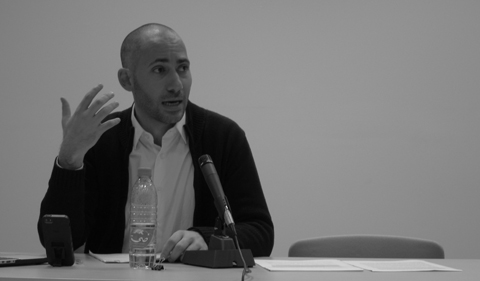
Dr. Ziad Abu-Rish
Dr. Ziad Abu-Rish, Assistant Professor of History, was recently quoted in an Al-Ahram Weekly article on the murder of Jordanian writer and activist Nahed Hattar.
Hattar was facing criminal charges for “insulting religion” and “sowing sectarian strife” in the Hashemite Kingdom of Jordan after sharing a cartoon that depicted an Islamic State fighter giving orders to God. While approaching the main courthouse in the capital of Amman, a man shot and killed him. The incident has sparked a series of debates about freedom of speech, religious extremism, and the government’s own conduct.
Al-Ahram Weekly is an Egyptian English-language weekly newspaper, published in both print and online. The article was on the major English-language media outlets in the Middle East region. Written by journalist Amira Howeidy, it gives an overview of the background leading up to Hattar’s assassination and its aftermath. Howeidy quoted Abu-Rish with respect to the potential impact the assassination might have on Jordan:
“‘My concern now, beyond a public inquiry into the government’s failure to adequately protect Hattar, is that the regime will use this incident to its own advantage,’ Ziad Abu-Rish, a history professor at Ohio University who is specialised in Jordan said in an email response. ‘The only thing possibly worse than the killing of Hattar is the regime’s unfolding appropriation of the incident to claim itself a champion of reform and moderation.’
The Jordanian government is expected to take steps to mitigate public anger in the short term, said Abu-Rish, ‘while it will only add to the list of grievances that those advocating a more transparent, accountable, and open society have against the status quo. But the very act of the assassination and the government’s complicity has certainly scared many.'”
Howeidy had interviewed Abu-Rish about several aspects of the Hattar murder, including the media gag order the government imposed in the aftermath of his killing. In the interview, Abu-Rish argued:
“The gag order is part of the problem rather than the solution. It might make sense to criminalize speech that incites violence, but what the government is and has been doing is criminalizing public debate and dissent concerning the law and the conduct of the government. Genuine reform in Jordan is not the regime establishing a monopoly over regulating public speech, it is the regime defending the right of citizens to free speech.”
Abu-Rish also recently published an article on the Hattar incident, titled “Brief Reflections on Assassinations and Intolerance in Jordan.”

















Comments